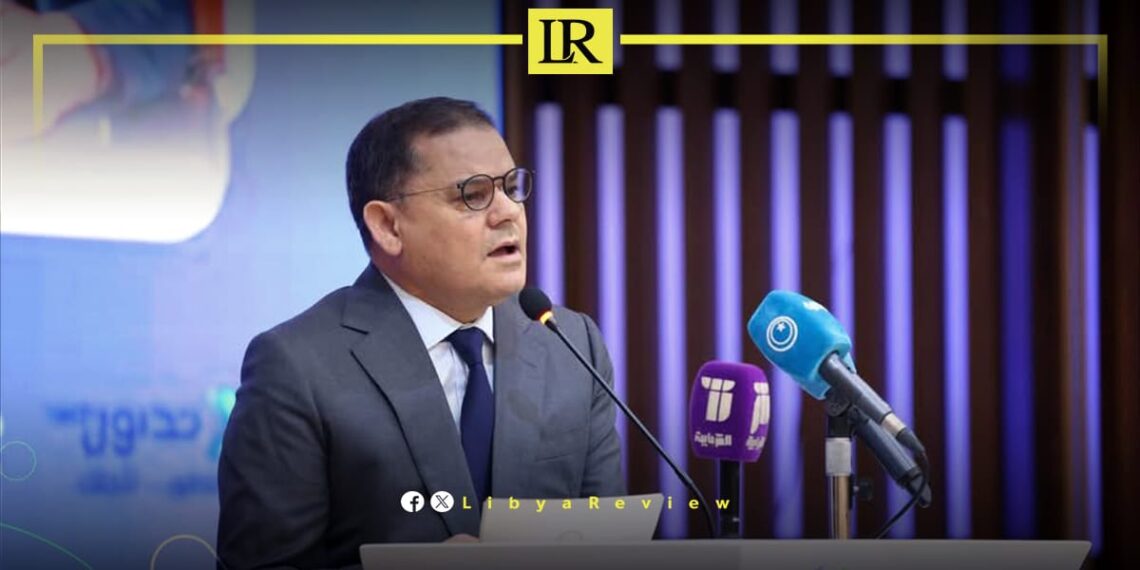Libyan Prime Minister of the Government of National Unity (GNU), Abdel-Hamid Dbaiba, has warned of serious internal and external economic challenges during his speech at the first session of the Libyan Economic Forum. Dbaiba highlighted concerns over unchecked public debt and ongoing parallel spending outside the approved state budget.
He described the debt as “imaginary”, accumulated without oversight or legal approval, and said it is ultimately being paid for by ordinary Libyans through a weakened exchange rate and inflationary fiscal policies. “This debt isn’t being paid from the pockets of those who caused it, but from the citizens’ own pockets,” he said, referring to the declining purchasing power caused by harsh financial measures.
Dbaiba labelled the situation a real economic war on Libya’s structure, stressing that although official wages remain unchanged on paper, their real value is silently eroding. He questioned the legality of large sums being spent from the Central Bank of Libya without proper accountability.
The Prime Minister also noted that Libya’s economy is not immune to global shifts, particularly the drop in oil prices. With oil accounting for 95% of state revenues, Libya remains vulnerable to international market changes. He added that regional conflicts in neighbouring countries continue to place additional strain on Libya’s economy and security.
Despite these issues, Dbaiba pointed to signs of economic progress. He cited an IMF report stating that Libya recorded the highest GDP growth in the Arab world at 12%, with inflation among the lowest in the region at around 2.5%. Oil production has also increased from 1.1 to 1.4 million barrels per day, which he described as a positive economic indicator.
Additionally, despite the reported fiscal deficit, Libya’s foreign reserves remain strong, ranging between $84 and $94 billion, up from $79 billion in 2021.


